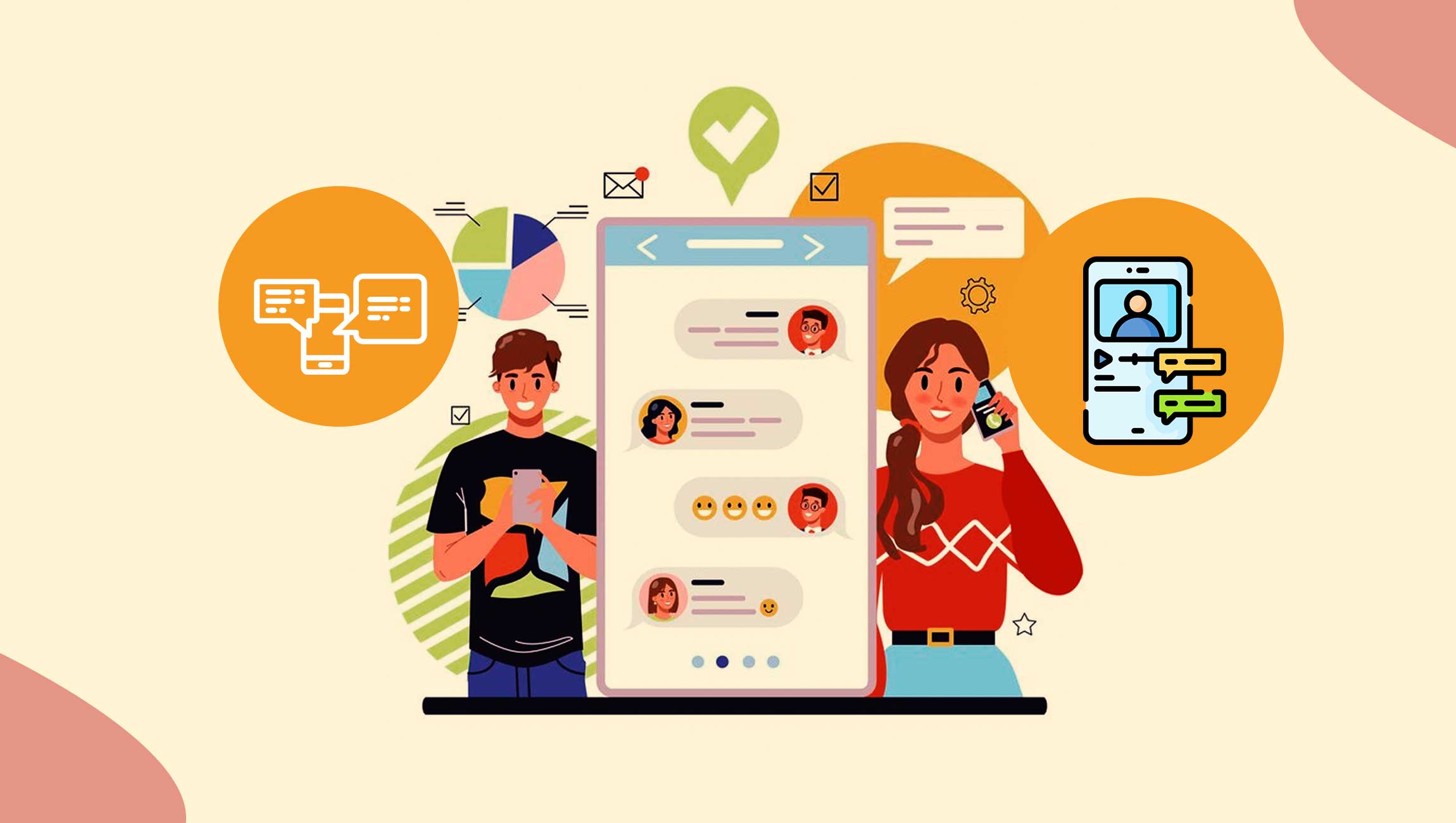Chat marketing refers to the strategic use of chat platforms and messaging apps as powerful marketing tools to engage and connect with customers. In a world driven by instant communication, chat marketing harnesses the potential of real-time conversations to deliver personalized and interactive experiences. By leveraging artificial intelligence and chatbots, businesses can automate customer interactions, provide instant support, and deliver targeted marketing messages.
Chat marketing enables companies to reach customers on their preferred platforms, such as social media messaging apps and website chat widgets. It facilitates personalized recommendations, lead generation, and seamless customer journeys, fostering stronger relationships and enhancing overall customer satisfaction. In the era of conversational commerce, chat marketing revolutionizes the way businesses engage with their audience.
Leveraging Chat Marketing to Drive Customer Conversations
Chat marketing is revolutionizing the way brands engage with customers by fostering real-time conversations, personalization, and seamless experiences. Here are the different ways in which brands are using chat marketing to drive conversations:
1. Proactive Customer Engagement:
Brands are using chat marketing to initiate conversations with customers rather than waiting for them to reach out. By leveraging chatbots, they can proactively engage customers on various platforms. Hence, they are able to provide personalized recommendations, answer inquiries, and offer support. This proactive approach enhances customer experience and builds a sense of brand loyalty.
2. Interactive Campaigns:
Chat marketing allows brands to create interactive campaigns that actively involve customers in the conversation. Through chat platforms, businesses can run quizzes, contests, and polls, encouraging customers to participate and share their opinions. These campaigns not only generate buzz but also gather valuable customer insights that can inform future marketing strategies.
3. Personalized Recommendations:
Chat marketing enables brands to deliver custom recommendations based on customer preferences and behaviour. By analyzing conversations through AI algorithms, businesses can better understand customer needs and suggest relevant products. This personalized approach increases the likelihood of conversions and enhances customer satisfaction.
4. Seamless Customer Journeys:
Chat marketing facilitates seamless customer journeys by providing consistent support across different touchpoints. Customers can initiate conversations on one platform and continue the conversation on another without losing context. This approach ensures that customers receive the information and assistance they need at every stage of their journey boosting engagement and driving conversions.
5. Automated Customer Support:
With chatbots, brands can automate customer support and provide instant assistance 24/7. Chatbots can handle common inquiries, provide product information, and even resolve simple issues. By automating these processes, brands can reduce response times and free up human agents to focus on more complex customer needs.
6. Lead Generation:
Chat marketing serves as an effective tool for lead generation. By using chat platforms, brands can capture customer information and initiate conversations that nurture leads. Chatbots can qualify leads by asking relevant questions and guiding customers through the sales funnel. This proactive lead generation approach enables brands to identify potential customers and engage with them in real time, increasing the chances of conversion.
7. Targeted Messaging:
Chat marketing allows brands to deliver targeted messages based on customer segmentation and behavior analysis. By understanding customer preferences and purchase history, businesses can send personalized offers, promotions, and recommendations directly through chat platforms. This targeted messaging approach boosts engagement and conversion rates by delivering relevant content to the right customers at the right time.
Marketing Technology News: MarTech Interview with Brad Gillespie, GM @ Cvent Consulting
Leading Brands Using Chat Marketing
By leveraging the power of chat platforms and chatbots, brands can connect with customers in a more engaging and interactive manner. This can lead to enhanced customer satisfaction and increased business opportunities. Here are some examples of leading brands using chat marketing to engage their audience:
1. Sephora:
Sephora, a renowned beauty retailer, utilizes chat marketing to engage with customers through its Sephora Virtual Artist feature. This chatbot allows customers to try on different makeup looks virtually and receive personalized product recommendations based on their preferences. The interactive chat experience drives conversations, provides valuable beauty tips, and encourages customers to explore and purchase products.
2. Domino’s Pizza:
Domino’s Pizza leverages chat marketing through its “Domino’s AnyWare” platform. Customers can order pizza through various chat platforms, including Facebook Messenger, Twitter, and even voice-activated devices like Amazon Echo. This seamless chat experience enables customers to easily place orders, track delivery, and receive personalized offers, all within the chat conversation.
3. National Geographic:
National Geographic uses chat marketing to engage its audience through a Facebook Messenger chatbot. The chatbot delivers daily nature and wildlife news, quizzes, and stunning photographs. By leveraging chat marketing, National Geographic creates an interactive and educational experience, encouraging users to explore more content, share their experiences, and become more connected with the brand.
4. H&M:
H&M, a global fashion brand, employs chat marketing to provide personalized fashion recommendations to customers. Through their chatbot on the Kik messaging app, H&M engages with users, asks about their style preferences, and suggests outfits based on their responses. This interactive chat experience not only drives conversations but also boosts customer engagement and encourages purchases.
Conclusion
Chat marketing has emerged as a powerful strategy for brands to drive customer conversations. By leveraging chat platforms and chatbots, businesses can proactively engage customers, deliver personalized experiences, provide support, and gather valuable insights. Chat marketing revolutionizes customer engagement and enhances overall brand performance in today’s digital landscape.
Marketing Technology News: Next-Gen Marketing Automation Platforms: Latest Advancements











